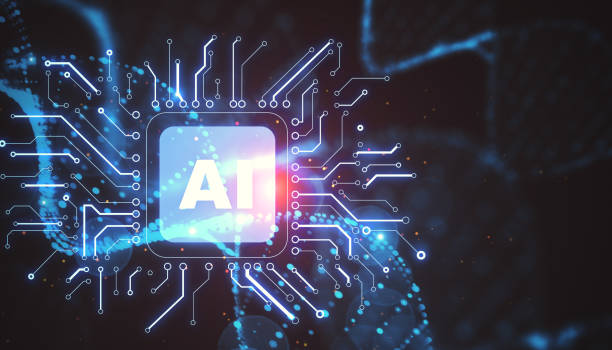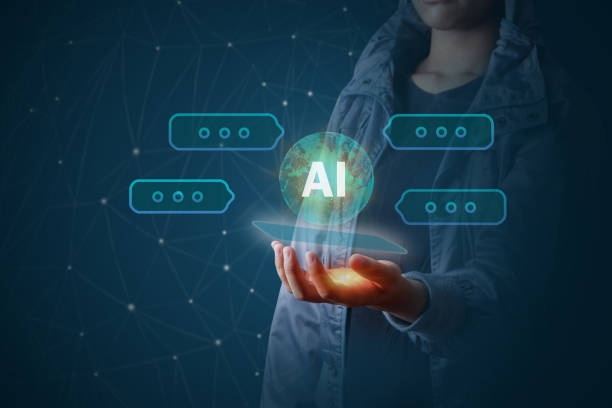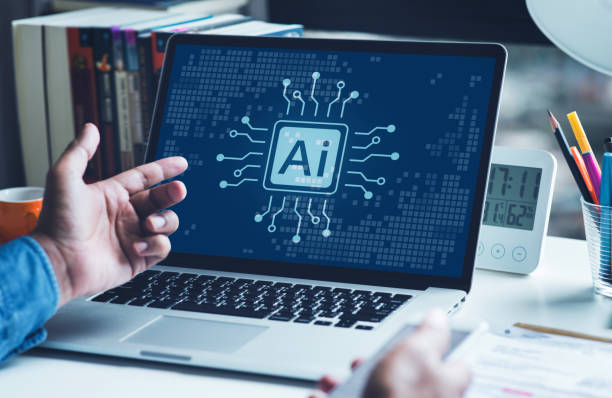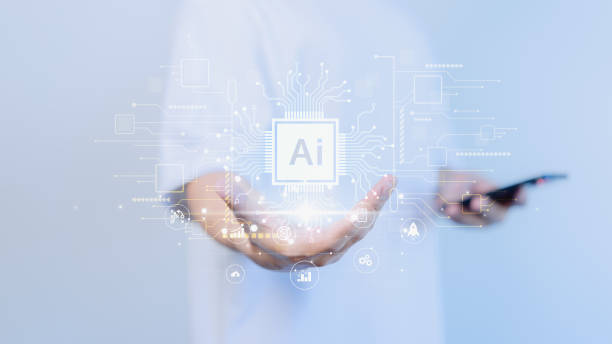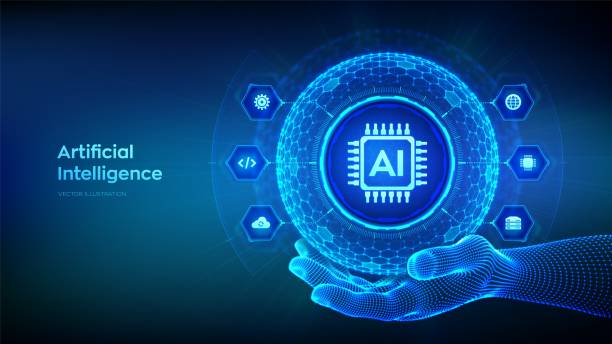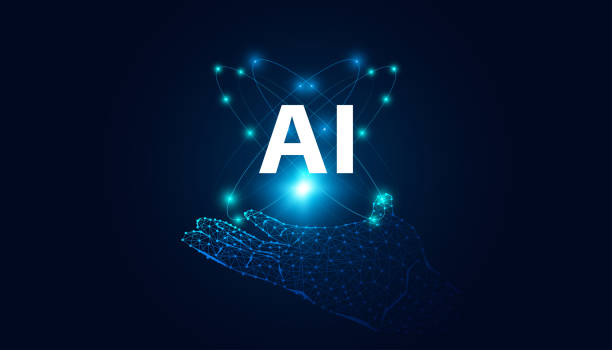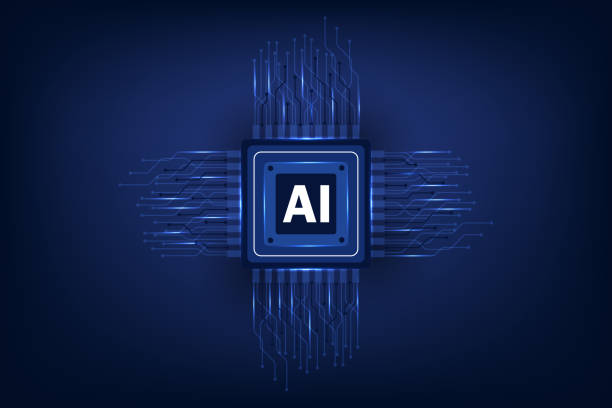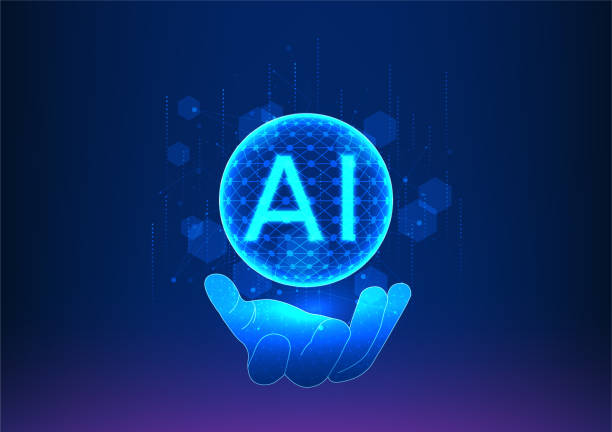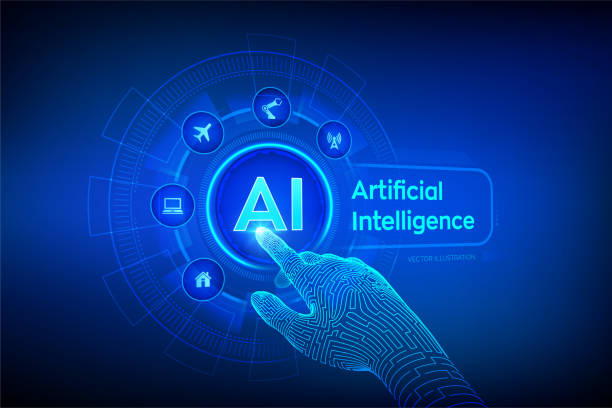Artificial Intelligence in Your Pocket: The Mobile App Revolution
Today, artificial intelligence (#AI) is increasingly permeating our daily lives.
One of the most prominent examples is mobile AI applications, which, by offering diverse capabilities, have revolutionized the way we interact with smartphones.
From voice assistants to photo editing tools and facial recognition, mobile AI applications provide users with new possibilities.
By leveraging complex machine learning and natural language processing algorithms, these applications are able to understand and respond to users’ needs in an intelligent way.
In this article, we will comprehensively examine mobile AI applications.
First, we will take a look at the history and evolution of these applications, and then we will introduce their various types and applications.
We will also discuss the advantages and disadvantages of using mobile AI applications and the challenges faced by their developers.
The aim of this article is to provide a comprehensive and practical guide to selecting and using the right mobile AI applications for different user needs.
By reading this article, you can benefit from the features and capabilities of these applications with a more open and informed perspective.
To better understand this topic, you can visit the Artificial Intelligence page on Wikipedia.
Disappointed with the low conversion rate of your online store? Rasaweb transforms your online store into a powerful tool for attracting and converting customers!
✅ Significant increase in visitor-to-buyer conversion rate
✅ Exceptional user experience to increase customer satisfaction and loyalty⚡ Get a free consultation from Rasaweb!
History and Evolution of Artificial Intelligence Applications
The idea of using artificial intelligence in mobile devices goes back a long way.
However, recent advances in hardware and software, especially the increased processing power of smartphones and the development of machine learning algorithms, have made the widespread implementation of mobile AI applications possible.
The first mobile AI applications are usually known as simple voice assistants such as Siri in iOS and Google Now in Android.
Using natural language processing, these applications are able to answer users’ questions, perform simple tasks, and provide information.
Over time, mobile AI applications have become more complex and powerful.
Today, we see applications that are capable of performing more complex tasks such as face recognition, language translation, photo and video editing, and even self-driving.
The development of these applications is due to recent advances in deep learning and artificial neural networks.
The future of mobile AI applications looks very bright.
With the ever-increasing advances in artificial intelligence, it is expected that these applications will play a much more important role in our lives in the near future.
For example, one can refer to mobile application development that are integrated with artificial intelligence.
Types of Mobile Artificial Intelligence Applications and Their Uses
Mobile AI applications can be divided into different categories based on their applications.
Here, we mention some of the most important of these categories:
1.
Voice Assistants These applications use natural language processing to answer users’ questions, perform simple tasks, and provide information.
Siri, Google Assistant, and Alexa are among the most well-known voice assistants.
2.
Photo and Video Editing Applications These applications use artificial intelligence to improve the quality of photos and videos, remove unwanted objects, change backgrounds, and add special effects.
3.
Facial Recognition Applications These applications use artificial intelligence to recognize people’s faces in photos and videos.
These applications can be used to unlock phones, identify people on social networks, and for security purposes.
4.
Language Translation Applications These applications use artificial intelligence to translate text and speech from one language to another.
5.
Self-Driving Applications These applications use artificial intelligence to control the vehicle without driver intervention.
6.
Health Applications These applications use artificial intelligence to provide medical advice, diagnose diseases, and track users’ health status.
7.
Educational Applications These applications use artificial intelligence to provide personalized training tailored to the needs of each individual.
In addition to these categories, mobile AI applications are also used in other fields such as gaming, e-commerce, finance, and many other areas.
Below is a table for your better understanding:
| Application Category | Application | Examples |
|---|---|---|
| Voice Assistants | Answering questions, performing tasks | Siri, Google Assistant, Alexa |
| Photo and Video Editing | Improving quality, removing objects, changing background | FaceApp, Adobe Photoshop Camera |
| Facial Recognition | Unlocking, identifying people | Face ID, Google Photos |
| Language Translation | Translating text and speech | Google Translate, Microsoft Translator |
| Health | Medical advice, diagnosing disease | Ada, Babylon Health |
Benefits of Using Mobile Artificial Intelligence Applications
There are many advantages to using mobile AI applications, some of which are mentioned below:
1.
Increased Productivity AI applications can help users increase their productivity by automating tasks and providing needed information.
For example, voice assistants can save users time by answering questions and performing simple tasks.
2.
Improved Quality of Life AI applications can help improve users’ quality of life by providing health, education, and entertainment services.
For example, health apps can help users live healthier lives by providing medical advice and tracking their health status.
3.
Easy Access to Information AI applications can help users access the knowledge and information they need by providing needed information anytime, anywhere.
4.
Personalizing the User Experience AI applications can personalize the user experience by learning users’ behavioral patterns and providing services and information tailored to each individual’s needs.
5.
Cost Reduction AI applications can help reduce costs by automating tasks and reducing the need for manpower.
For example, AI-powered customer support systems can answer customer questions around the clock and reduce the need to hire support staff.
Did you know that a poorly designed online store can drive away up to 70% of your potential customers? Rasaweb transforms your sales with professional and user-friendly online store designs.
✅ Significant increase in sales and revenue
✅ Full optimization for search engines and mobile
⚡ [Get a free consultation from Rasaweb]
Disadvantages and Challenges of Artificial Intelligence Applications
In addition to the advantages, the use of mobile AI applications also has disadvantages and challenges, which are mentioned below:
1.
Privacy The collection and use of users’ data by AI applications raises concerns about privacy.
Users should be aware of what data is collected by these applications and how it is used.
2.
Accuracy The accuracy of AI applications is not always perfect and errors may occur in some cases.
Users should be aware that they should not fully believe the results provided by these applications and should review them if necessary.
3.
Dependency Excessive use of AI applications can lead to user dependence on them.
Users should try to maintain balance in the use of these applications and not become completely dependent on them.
4.
Bias Artificial intelligence algorithms may have biases resulting from the training data used for them.
These biases can lead to discrimination in the provision of services and information.
5.
Security AI applications may be subject to cyberattacks and user information may be compromised.
Developers of these applications must take the necessary measures to protect them against cyberattacks.
For example, you can refer to artificial intelligence security.
How to Choose the Right Artificial Intelligence Application
Choosing the right mobile AI application depends on the needs and preferences of each individual.
Here are some important points to consider when choosing these applications:
1.
Determine your needs First of all, you should specify what type of application you are looking for and what expectations you have of it.
Are you looking for a voice assistant? Are you looking for a photo editing application? Are you looking for a health app?
2.
Check user reviews Before installing an application, check other users’ reviews about it.
These reviews can help you learn about the application’s strengths and weaknesses.
3.
Check the application’s permissions Before installing an application, check the permissions it requests from you.
If an application requests too many permissions that are not related to its function, it is best to refrain from installing it.
4.
Pay attention to your privacy Before using an application, read its privacy policy.
Make sure your data is stored securely and used properly.
5.
Use trial versions Many mobile AI applications offer free trial versions.
Before buying the full version, use the trial version to make sure the application is right for you.
This point is especially important for the best AI apps in 2024.
What Will the Future of Mobile Artificial Intelligence Applications Be?
The future of mobile AI applications looks very bright.
With the ever-increasing advances in artificial intelligence, it is expected that these applications will play a much more important role in our lives in the near future.
Here are some of the important trends we will see in the future of mobile AI applications:
1.
Becoming Smarter AI applications will become smarter and more powerful in the future.
They will be able to perform more complex tasks and respond to users’ needs in a more intelligent way.
Click here to preview your posts with PRO themes ››
2.
More Personalization AI applications will increasingly personalize the user experience in the future.
They will be able to learn users’ behavioral patterns more accurately and provide services and information tailored to the needs of each individual.
3.
More Integration AI applications will be integrated with other devices and services in the future.
This will allow users to use AI capabilities in a wider range of their activities.
A table to show integration:
| Integration Area | Description | Example |
|---|---|---|
| Smart Home | Controlling home devices via AI application | Turning lights on and off with voice assistant |
| Car | Integration with navigation and self-driving systems | Smart routing and adaptation to traffic conditions |
| Health | Monitoring health status and providing suggestions | Tracking heart rate and providing suitable exercise |
4.
Greater Accessibility AI applications will become more accessible in the future and will be usable by a wider range of users.
Developers of these applications must pay attention to the needs of users with various disabilities and design applications that are usable by everyone.
5.
Greater Responsibility Developers of mobile AI applications must take more responsibility for the results provided by these applications.
They must ensure that their AI algorithms are free of bias and that user data is used properly.
The Impact of Artificial Intelligence Applications on Businesses
Mobile AI applications have a significant impact on businesses.
These applications can help businesses improve their processes, reduce costs, improve customer experience, and increase their revenue.
Here are some of the most important applications of mobile AI applications in businesses:
1.
Process Automation Mobile AI applications can automate many business processes.
For example, AI applications can automatically respond to customer emails, process orders, and issue invoices.
2.
Improving Customer Experience Mobile AI applications can improve customer experience by providing personalized services and responding quickly to customer needs.
For example, AI applications can help customers find the product they are looking for, ask questions, and solve their problems.
3.
Data Analysis Mobile AI applications can analyze business data and provide valuable information about customers, competitors, and the market.
This information can help businesses make better decisions and improve their strategies.
4.
Marketing and Sales Mobile AI applications can help businesses optimize their marketing and sales campaigns and achieve better results.
For example, AI applications can automatically target advertisements, personalize marketing content, and increase conversion rates.
5.
Human Resource Management Mobile AI applications can help businesses improve their human resource management processes.
For example, AI applications can automatically review resumes, conduct interviews, and evaluate employee performance.
Check out how AI impacts businesses.
Is your online store ready to attract maximum customers and increase sales? Rasaweb transforms your online business with modern and efficient online store designs.
✅ Increased speed and improved SEO
✅ Excellent user experience on mobile and desktop⚡ Get a free consultation on online store design from Rasaweb!
Privacy and Security in Mobile Artificial Intelligence Applications
Privacy and security are two important issues in the field of mobile AI applications.
The collection and use of users’ data by these applications raises concerns about privacy.
Also, these applications may be subject to cyberattacks and user information may be compromised.
Here are some of the most important points to consider about privacy and security in mobile AI applications:
1.
Control your data Before using an application, read its privacy policy.
Make sure your data is stored securely and used properly.
If you do not agree with how an application uses your data, refrain from using it.
2.
Check the application’s permissions Before installing an application, check the permissions it requests from you.
If an application requests too many permissions that are not related to its function, it is best to refrain from installing it.
3.
Use a strong password Use a strong password for your user accounts in mobile AI applications.
Your password should be at least 8 characters long and include a combination of uppercase letters, lowercase letters, numbers, and symbols.
4.
Keep your software up to date Keep your mobile operating system and mobile AI applications up to date regularly.
These updates usually include security patches that can protect your mobile phone from cyberattacks.
5.
Use public Wi-Fi networks with caution Be careful when using public Wi-Fi networks.
These networks may not be secure and hackers may be able to access your information.
Click here to preview your posts with PRO themes ››
How to Develop a Mobile Artificial Intelligence Application?
Developing a mobile AI application requires specific knowledge and skills.
Here are some of the most important steps you should take to develop these applications:
1.
Choose a Platform First, you must decide which platform (such as iOS or Android) you will develop your mobile AI application for.
Each platform has its own tools and technologies.
2.
Collect Data To train artificial intelligence algorithms, you need a lot of data.
This data should be relevant to your application’s use and properly labeled.
3.
Select an Algorithm There are different algorithms for machine learning.
You should choose an algorithm that is suitable for your application’s use.
4.
Model Training After selecting an algorithm, you must train it using the collected data.
This process may be time-consuming and costly.
5.
Implementation After training the model, you must implement it in your application.
This requires programming knowledge and familiarity with artificial intelligence frameworks.
6.
Testing and Evaluation After implementation, you must fully test and evaluate your application.
Make sure the application works correctly and provides accurate results.
Finally, you can refer to the Mobile AI Application Development resources.
And benefit from it.
Frequently Asked Questions
| Number | Question | Answer |
|---|---|---|
| 1 | What is a mobile AI application? | A mobile AI application is a program that uses the capabilities of artificial intelligence (such as machine learning, natural language processing, computer vision) to provide smarter and more automated experiences on mobile devices. |
| 2 | Why is AI important in mobile applications? | Its importance is due to increased efficiency, personalization of user experience, automation of tasks, improved decision-making, and providing innovative capabilities such as facial recognition or voice assistants. |
| 3 | What are some examples of mobile applications with AI? | Voice assistants (such as Siri, Google Assistant), navigation programs with real-time traffic (Google Maps), image filters (Snapchat, Instagram), language translation programs, and facial recognition applications. |
| 4 | What are the challenges in developing mobile AI applications? | Hardware limitations of mobile devices (processing power, battery), the need for a lot of high-quality data, maintaining user privacy, and the complexity of implementing AI models. |
| 5 | What is the role of machine learning in these applications? | Machine learning allows the application to learn from data, identify patterns, and improve its performance over time, such as product recommendation systems or speech recognition. |
| 6 | Do mobile AI applications need an internet connection? | Many advanced AI capabilities require an internet connection and cloud processing, but some lighter models can also work “on-device” (without the internet). |
| 7 | How does AI help improve the user experience on mobile? | By personalizing content, predicting user needs, automating repetitive tasks, and providing more natural user interfaces such as voice commands. |
| 8 | What is the difference between cloud AI and on-device AI in mobile? | Cloud AI uses powerful servers for processing (requires the internet), while on-device AI performs processing directly on the phone itself (no internet required, but with processing limitations). |
| 9 | What will the future of mobile AI applications be like? | We expect to see increased personalization capabilities, deeper integration with phone sensors, the development of smarter assistants, and advances in on-device processing. |
| 10 | Which frameworks are popular for developing AI in mobile? | TensorFlow Lite (for Android and iOS), Core ML (for iOS), PyTorch Mobile are among the popular frameworks for implementing AI models in mobile applications. |
And other services of Rasa Web Advertising Agency in the field of advertising
Intelligent Google Ads: A new service to increase campaign management through precise audience targeting.
Intelligent Website Development: A new service to increase campaign management through user experience customization.
Intelligent Sales Automation: A combination of creativity and technology to increase website visits through intelligent data analysis.
Intelligent Digital Advertising: An effective tool to attract customers with attractive user interface design.
Intelligent Social Media: Designed for businesses looking to increase click-through rates by optimizing key pages.
And more than hundreds of other services in the field of internet advertising, advertising consulting and organizational solutions
Internet Advertising | Advertising Strategy | Reportage Ads
Sources
Best Android AI Applications
,Introducing the Best Android AI
,Best AI Application
,Google is Competing with AI Applications with Chat Bard
? Are you ready to transform your business in the digital world? Rasaweb Digital Marketing Agency with expertise in Modern UI Website Design, SEO, and content marketing strategies, smooths your path to online success.
📍 Tehran, Mirdamad Street, next to Central Bank, South Kazerun Alley, Ramin Alley No. 6

